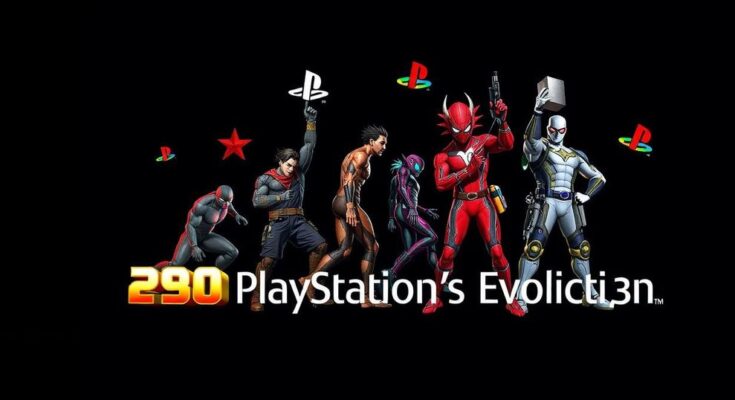Sony’s PlayStation celebrates its 30th anniversary, having drastically influenced the gaming industry since its December 3, 1994 launch. With over 102 million units sold, it established Sony’s position in the market, changing perceptions about gaming and targeting a broader audience. Despite current challenges, including rising competition and technological shifts, PlayStation continues to innovate.
Sony’s PlayStation is celebrating a significant milestone as it marks 30 years since its inception, having transformed the gaming landscape since its launch on December 3, 1994. Originally, the company aimed to sell one million units to cover production costs, a target it far exceeded with over 102 million units sold. This success not only positioned Sony as a major player in the gaming industry but also catalyzed the development of beloved gaming franchises.
Hiroyuki Maeda, a noted expert in video game history, asserts that the PlayStation altered the course of gaming by redefining hardware, software, distribution, and marketing. Sony sought to elevate gaming from a pastime often considered juvenile to a broader adult audience. This strategic pivot was influenced by their rivalry with Nintendo, which had dominated the market but catered primarily to younger gamers.
The origins of PlayStation can be traced back to a failed collaboration between Sony and Nintendo in the late 1980s. Following the breakdown of their partnership, which had aimed to create a CD-compatible Super Nintendo, Sony was compelled to independently develop its gaming console. With the introduction of CD-ROM technology, the original PlayStation offered substantial advantages in data storage and cost efficiency compared to traditional cartridges that competitors like Nintendo relied on.
Sony effectively targeted an older demographic with popular titles, expanding beyond the realms of child-friendly games. This strategy paid off as evidenced by its PS2 launch in 2000, which remains the best-selling console in history with over 160 million units sold. The marketing approach further differentiated Sony’s products; for example, critically acclaimed director David Lynch directed advertisements promoting the PlayStation 2 targeting mature audiences.
As the gaming industry has evolved over three decades, competition has increasingly intensified. While companies such as Sega have exited the market, new entrants like Microsoft with its Xbox have emerged alongside Nintendo’s enduring presence. However, the gaming sector faces challenges as consumer trends shift and console gaming appears threatened by the rise of cloud gaming technologies. In response, Sony continues to innovate, recently releasing an updated PlayStation 5 and planning the introduction of a new handheld console, reigniting competition with Nintendo.
The transformative impact of the original PlayStation resonates with gamers. Cyril 2.0, a French YouTuber, remarking on the nostalgic feelings driven by iconic titles such as “Tomb Raider” and “Final Fantasy VII,” explains that the console offered unprecedented emotional experiences. Ultimately, he emphasizes, “For consoles, games are still the most important thing.”
The PlayStation’s significance in gaming culture cannot be overstated, as it represents a pivotal transition in the video game industry from niche entertainment to a mainstream phenomenon. Prior to PlayStation’s launch, video gaming was heavily skewed towards children and featured limited technological capabilities. Sony’s groundbreaking approach not only influenced gaming experiences but also challenged existing perceptions and marketing strategies within a competitive landscape dominated by companies like Nintendo. Understanding this backdrop is essential to grasp the remarkable achievements and cultural relevance of the PlayStation over the last three decades, including its impact on game design, narrative complexity, and the broad appeal of the medium.
In conclusion, the PlayStation’s 30-year legacy is marked by transformative innovations that reshaped the gaming industry landscape. From its ambitious launch to its unparalleled sales success and evolution of gaming culture, Sony’s grey box remains a symbol of progress and creativity within the sector. Despite current challenges, including increasing competition and shifting technological trends, the PlayStation franchise appears poised to adapt and thrive, continuing to enhance the gaming experience for a diverse audience.
Original Source: jordantimes.com




